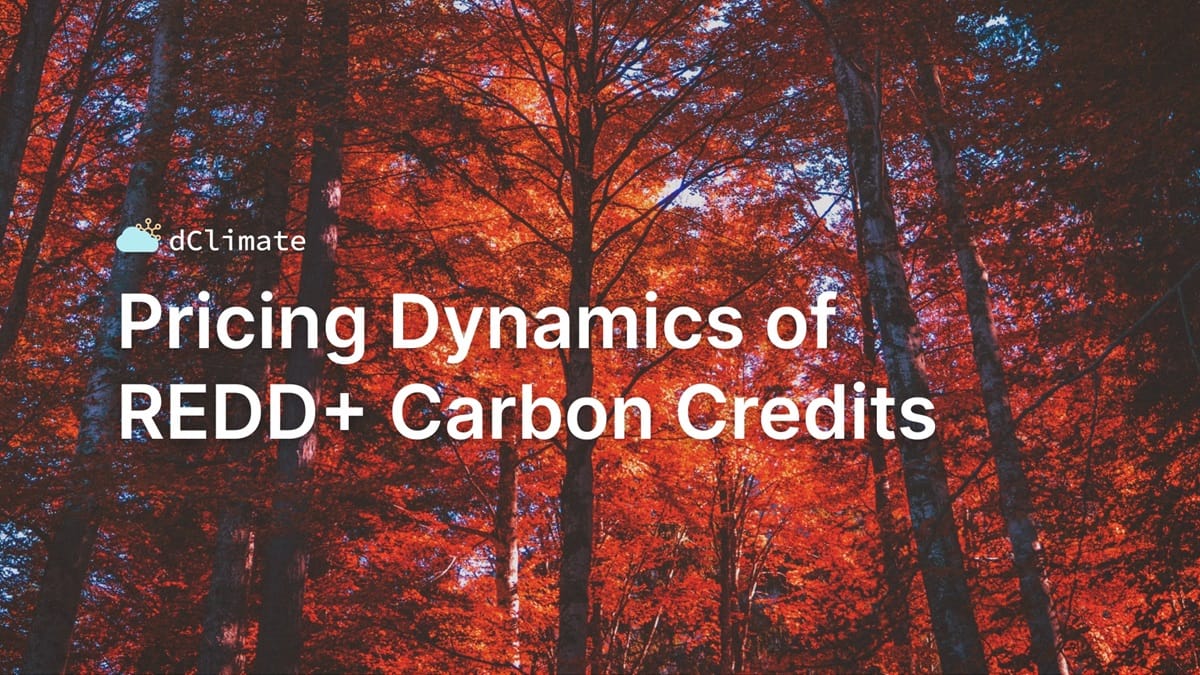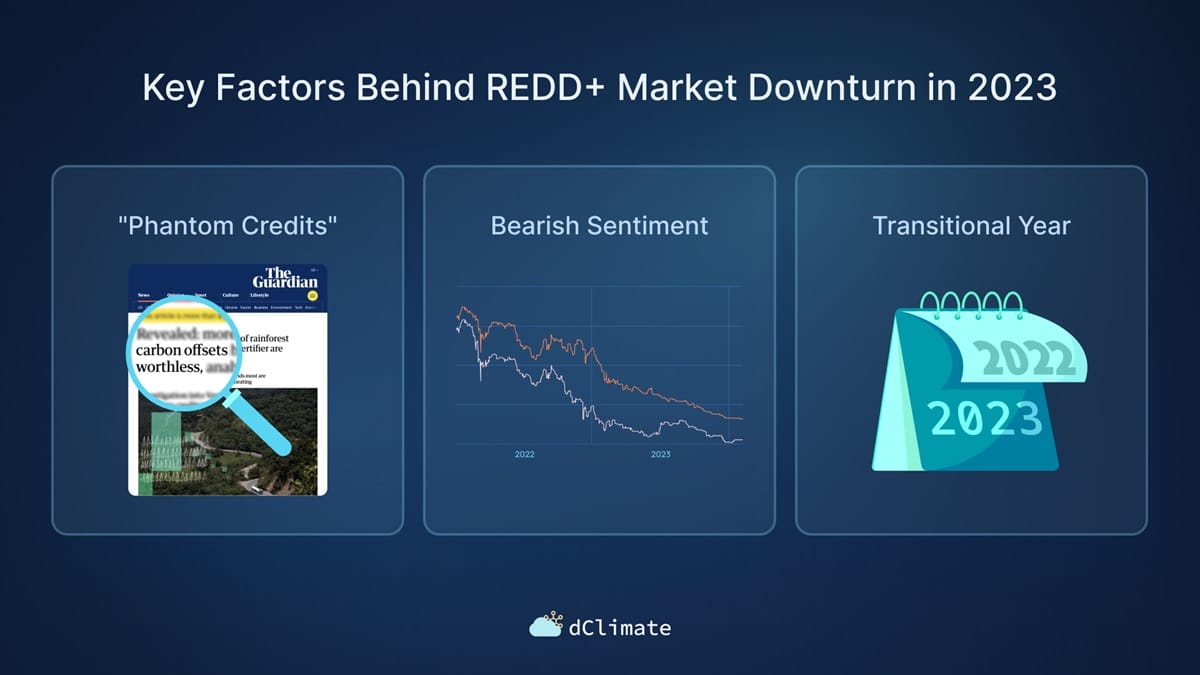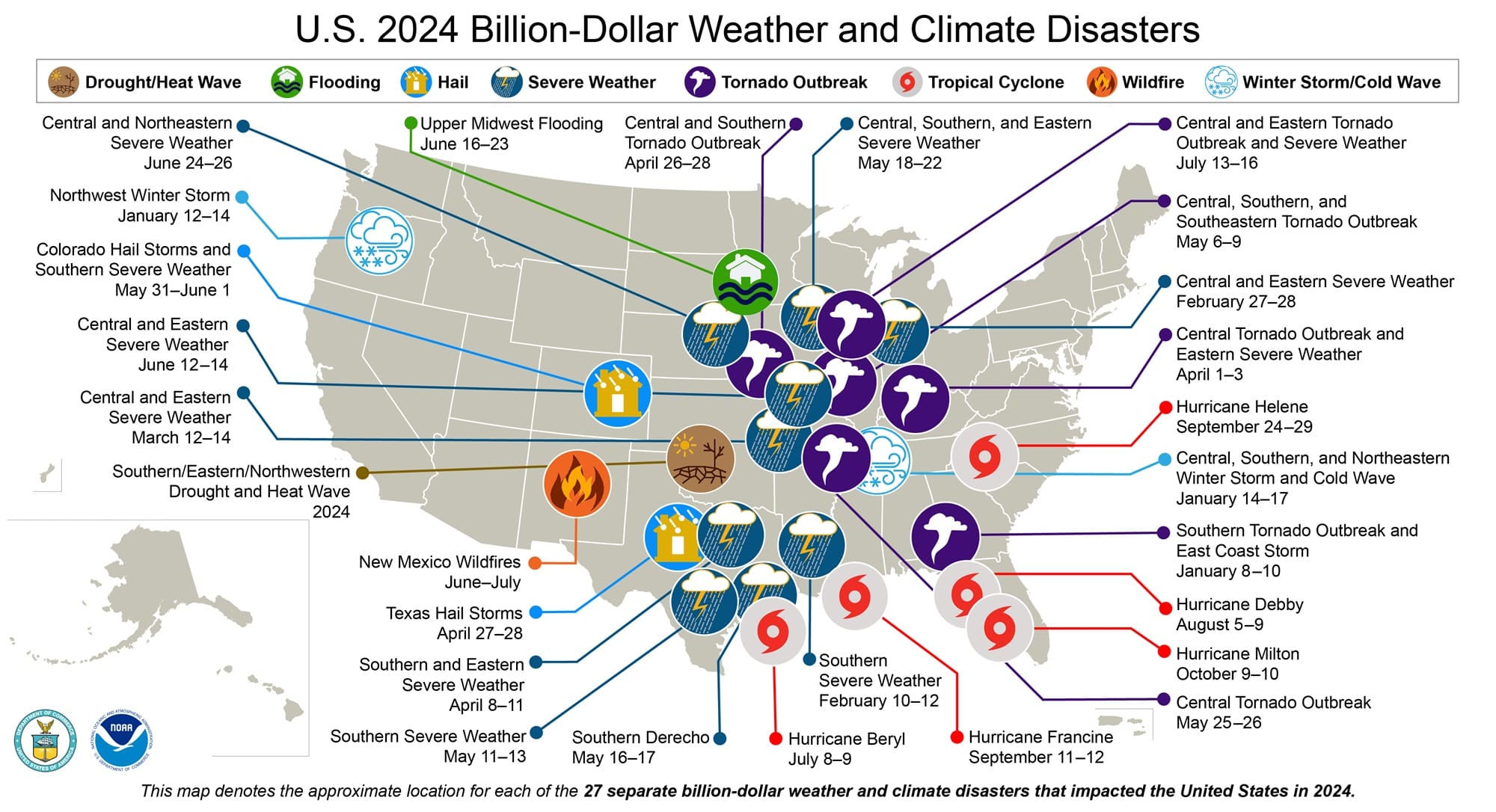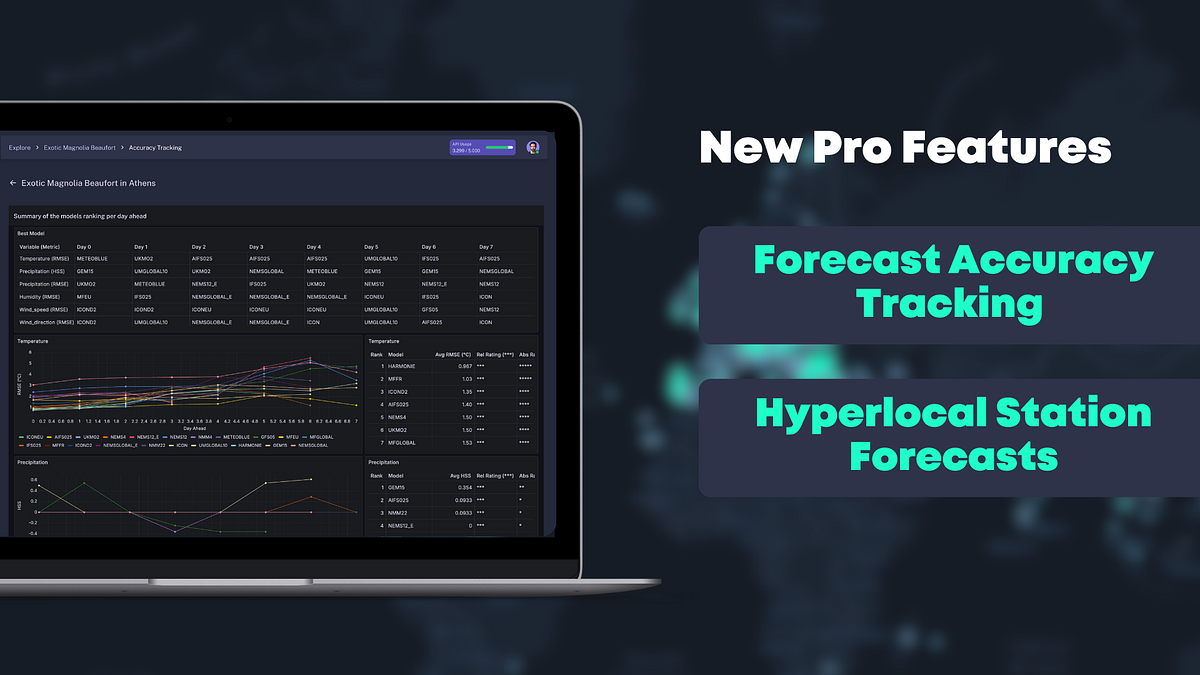Data ReFined #49: Pricing Dynamics of REDD+ Carbon Credits

⛅ Data ReFined is dClimate's biweekly newsletter, delivering insights at the intersection of the voluntary carbon market (VCM), digital MRV technologies, climate risk management, and climate intelligence.
In this edition:
Carbon Finance & Digital MRV
🌳 Factors Influencing REDD+ Carbon Credit Prices
🌳 The Benefits of Tokenized Carbon Credits
🌳 Abatable's Key Takeaways of the VCM in 2024
🌳 How to Measure Carbon Capture in Agricultural Soil
Climate Risk Management
🛡️ Arbol's CEO on Technology-Driven Parametric Climate Insurance
🛡️ Aon Report: Weather Disasters Cost $348 Billion in 2024
🛡️ AXA's First Climate Insurance Policy in the DRC
Climate Data & Intelligence
🌎 WeatherXM's New Features to Improve Forecast Accuracy
🌎 Top 10 Methane Hotspots with Continuous Emissions
🌎 NASA's Final Reprocessing Campaign of ASTER Data
Scroll down for our summaries of this news! 👇
Subscribe here and join over 4000+ readers!
Factors Influencing REDD+ Carbon Credit Prices
Our latest article analyzes how factors such as country risk, project quality, and credit surplus influence REDD+ carbon credit prices, highlighting the importance of robust governance and transparent methodologies for premium valuations.
Learn more via the link below:


The Benefits of Tokenized Carbon Credits
Osler’s recent article explores how blockchain technology is transforming global carbon markets by enabling the tokenization of carbon credits. The authors highlight that tokenized credits benefit financial institutions through improved transparency, traceability, and market efficiency.
Read more about how tokenization is shaping the future of climate finance:

Abatable's Key Takeaways of the VCM in 2024
Abatable's review of 2024 emphasizes the U.S.'s growing role in carbon markets amid global advancements in carbon credit integrity and corporate climate strategies. Read more →
How to Measure Carbon Capture in Agricultural Soil
Advancements in remote sensing are unlocking new insights into soil carbon storage. From satellite imagery to drone-mounted sensors and CO₂ flux towers, researchers are refining how we estimate carbon uptake in farmland. Read more →

Arbol's CEO on Technology-Driven Parametric Climate Insurance
What’s next for climate insurance? On Insurance Unplugged, dClimate co-founder and Arbol CEO Siddhartha Jha discusses the evolution of parametric insurance, the importance of decentralized climate data, and how blockchain and AI drive efficiency.
🎧 Listen to the episode:
Aon Report: Weather Disasters Cost $348 Billion in 2024
According to new reports from Gallagher Re and Aon, 2024 saw 58 billion-dollar weather disasters totaling over $348 billion in damages. Coupled with the hottest year in history, these figures highlight the urgent need for scalable, data-driven insurance solutions to strengthen climate resilience. Read more →
Reports:

AXA's First Climate Insurance Policy in the DRC
AXA Climate has introduced its first climate insurance product in the Democratic Republic of Congo, aiming to protect up to 300,000 farmers from drought and excessive rainfall.
This parametric insurance, developed in collaboration with the DRC's Ministry of Agriculture and supported by the World Bank, utilizes satellite data to trigger swift compensation, enhancing agricultural resilience. Read more →

WeatherXM's New Features to Improve Forecast Accuracy
WeatherXM, a community-powered network of local weather stations, has introduced two new features designed to improve forecast accuracy. One that evaluates the performance of multiple weather models using real-time data from its network of 8000 stations and another that selects the best-performing weather models for each forecast day to provide tailored predictions.
Find more details in the announcement below:

Top 10 Methane Hotspots with Continuous Emissions
A recent study utilizing data from ESA's Copernicus Sentinel-5P satellite has identified the top 10 global regions with persistent methane emissions, highlighting significant contributions from both natural wetlands and human activities such as oil, gas, and coal operations. Read more →
NASA's Final Reprocessing Campaign of ASTER Data
NASA has started an 18-month project to reprocess 25 years of data from the ASTER mission, detecting surface change on Earth. The updated datasets will be freely accessible in the NASA Earthdata Cloud after the final data processing campaign. Read more →
Thank You For Reading Our Newsletter! 💙
We greatly appreciate your interest and support! If you enjoyed this newsletter, please consider forwarding it to your network to increase awareness of these critical climate topics.
About dClimate
dClimate’s decentralized and open climate data infrastructure powers a wide range of applications, including climate risk assessments, parametric insurance, and climate intelligence platforms for carbon and commodity markets.
⛅ Visit our website | 📊 Discover our products
Join the dClimate Community!
We welcome your comments, feedback, and likes. Follow us on the channels below to stay updated and start building in our decentralized climate data ecosystem. 👇




